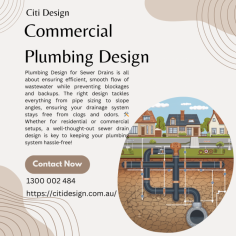
Plumbing design is a critical aspect of building engineering, focused on creating effective and sustainable water distribution and waste management systems. This discipline encompasses the layout of pipes, fixtures, and drainage systems to ensure optimal flow and compliance with safety regulations. A well-executed plumbing design enhances water efficiency, minimizes waste, and prevents potential hazards like leaks or blockages.
Key elements include the selection of appropriate materials, the integration of energy-efficient fixtures, and consideration of local building codes. Modern plumbing design also emphasizes eco-friendly practices, such as rainwater harvesting and greywater recycling, contributing to sustainable construction. By harmonizing functionality with safety and environmental responsibility, plumbing design plays a vital role in the overall success and longevity of any building project.

